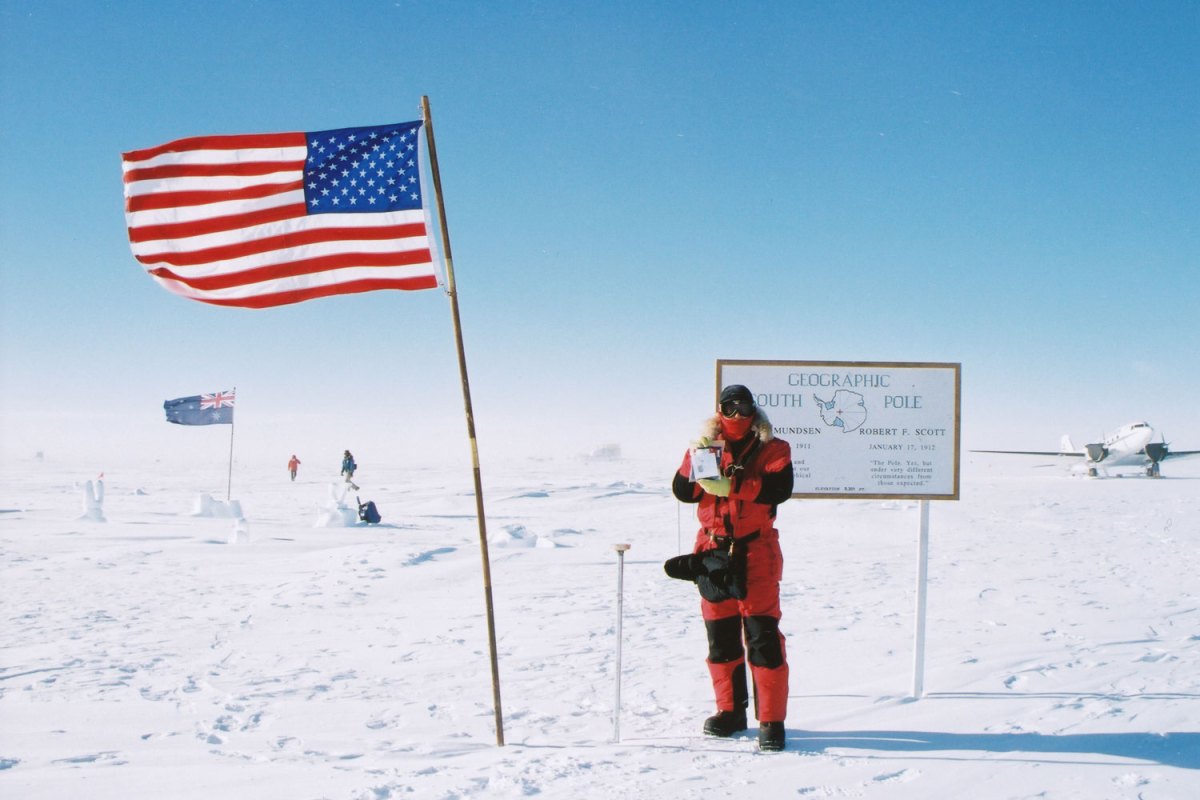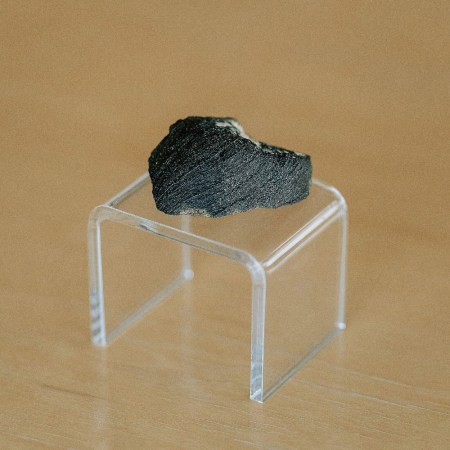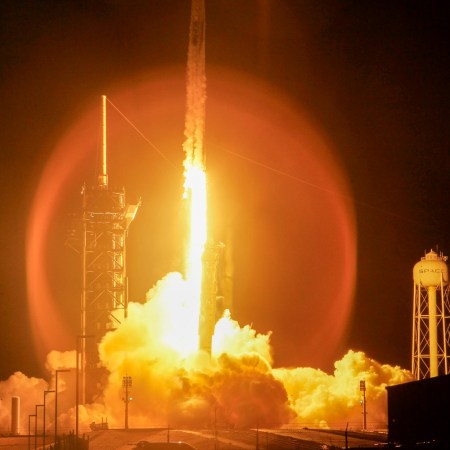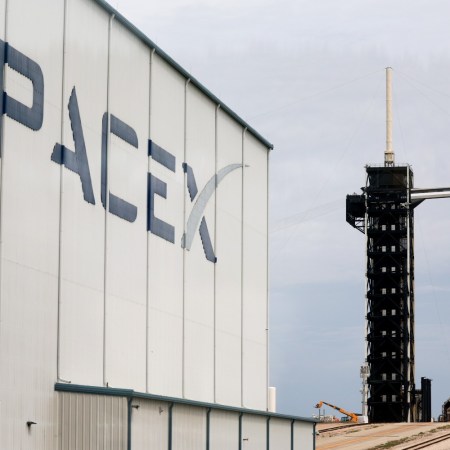In Partnership with The Glenrothes
Think back to a time when you did something thrilling, whatever that may mean to you. Did you travel somewhere adventurous, or do something daring, like cliff jumping or skydiving? Do you remember the anticipation leading up to it? The preparation it took mentally or physically? Or the sense of awe, curiosity and wonder that you were left with after?
That sense of awe is what Richard Garriott says he feels every time he’s on an expedition, and his drive to stay curious and keep asking questions is what motivates him to keep exploring. He’s the President of the Explorers Club, a professional society that promotes scientific studies and explorations. He’s cofounded several companies that promote deep sea exploration, explorations in Antarctica and spaceflight exploration. He’s a well-seasoned explorer who has trekked through all kinds of expeditions; he’s the only explorer who’s been to the North Pole and the South Pole, orbital space as the sixth private astronaut to live aboard the International Space Station and the bottom of the deepest place in the ocean.
He’s lived out experiences that most people will only dream of having for themselves. But that’s the essence of a fulfilling expedition — it transcends the boundaries of our everyday lives. It’s a rare exploit for those who are inquisitive — and are obsessed with being so. It’s for those who crave more beyond the bounds of what they experience in their daily routine. It carries the same quality that makes The Glenrothes as special as it is. As creators of the rare whisky, their luxury malt is crafted and made for life’s truest discerners. They understand the value behind purposeful progression, the timeless quality of unfrequented explorations and using all of our senses to promote discovery. It’s embodied in the bottles of their aged whisky, like The Glenrothes’ Philos, a world-first rare luxury whiskey made for explorers, yachters and sailors of the sea. It’s made for the truly discerning few who are ready to venture through another unparalleled experience.
Garriott shared with us what it takes to be an explorer and set out on great discoveries, along with a few important lessons he’s learned along the way.
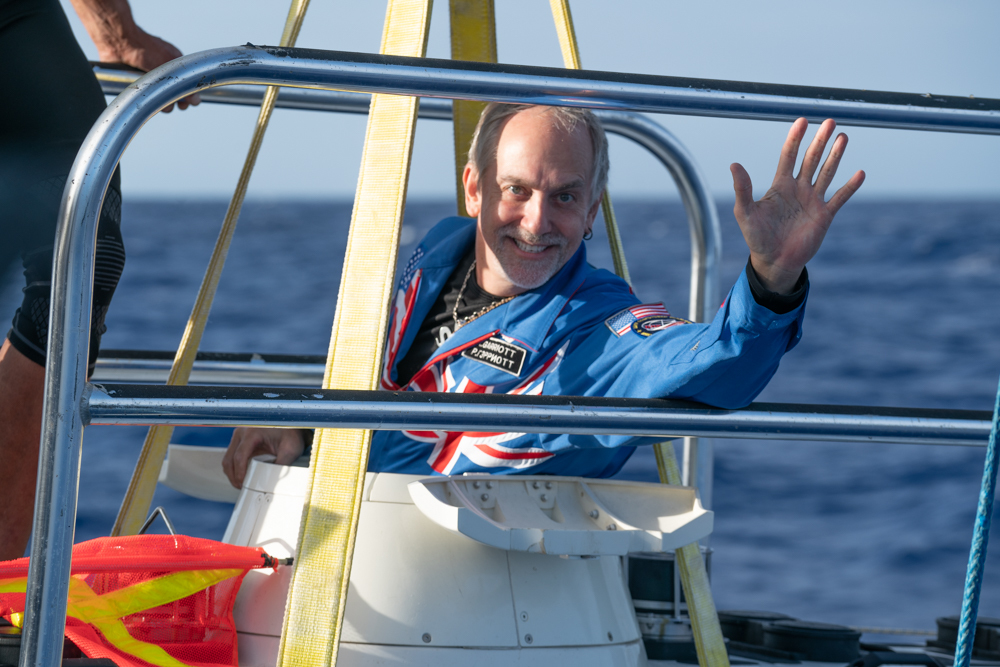
Stay Curious, Ask Questions
Garriott said that one trait all great explorers have in common is curiosity. “You have to be curious to what’s on the other side,” he said, “ [of] what’s beyond the fence. This stubbornness of the ‘Just don’t take no for an answer.’”
His father was an astronaut, and while he said that served as part of his inspiration for his work and conquests, he said it was his mother, an artist and a naturalist, who shaped his love for being out in nature, seeing the world and understanding the reality of where we live.
When he was 13 years old, he found out he needed glasses, which, at the time, made him no longer eligible to explore space. He said he had been investing in commercial spaceflight as soon as he started making money, and he was so young when he found out about needing glasses that he hadn’t even considered what he might want to be when he grew up. He grew up around many adults that were astronauts or worked closely with astronauts, and it was an expedition he didn’t want to give up on. This drive set him on a mission.
“I was like, ‘Wow, who’s that doctor to be the gatekeeper of space?” he said. “If I can’t go by the NASA rules, I’m gonna have to make my own space agency.’”
This led him to eventually cofounded Space Adventures, one of the only companies to arrange space flights for private citizens.
He carries the same level of inquisitiveness and determination that the 4,000 members of the Explorers Club do. The Club was founded in 1904 by Arctic explorers. Today, they carry out thousands of expeditions a year, Garriott said, including 250 “Flag Expeditions” that they consider their most important expeditions scientifically. They also host special week-long events to raise awareness on specific topics, symposiums, conferences and lectures to give the world a chance to hear a variety of important information and explorers the chance to get together and share their best practices, tools and technology.
“The explorers are the people who are [saying] let’s go,” Garriott said. “Let’s go into that village. Let’s go across that mountain. I don’t know what we’re gonna find, but we’ll deal with it when we find it, right? You’ll respect it, and you’ll embrace it. You know, once you discover what it is, you have this openness to the beauty of all that we find and understanding of impact.”
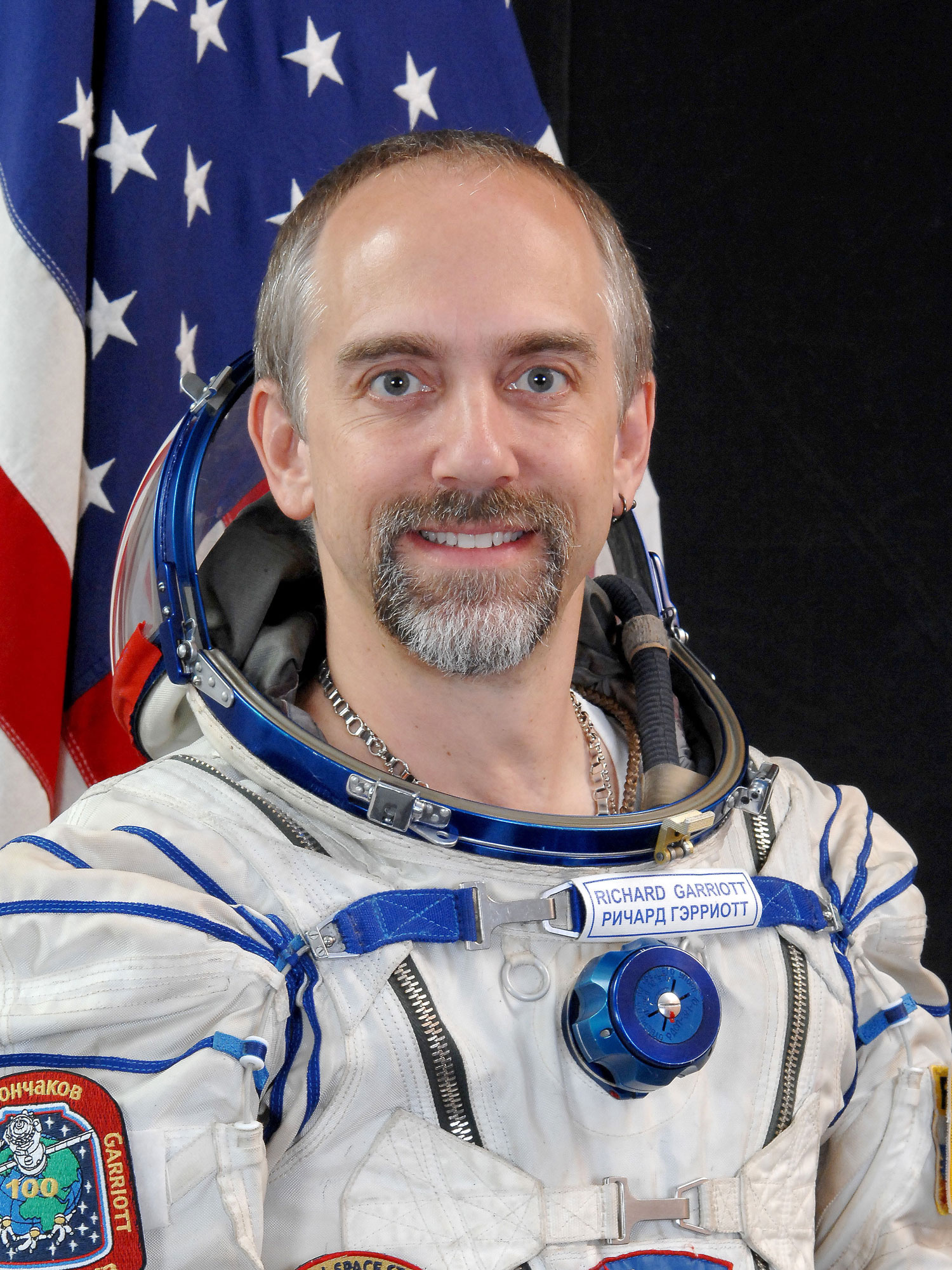
Seek Out and Research New Information
Garriott is also considered a founding father of the videogame industry. As the creator of the Ultima Series, he’s credited for creating the term “avatar” in a digital sphere and the category of massively multiplayer games (MMORPGs). He said one important lesson he’s learned through game development that’s translated into the explorer aspect of his life is the importance of doing tasks repetitively.
“I was so “back in the earliest days” that there were no lessons, there was no teacher, there was no one who could describe to me how to program, much less how to structure or design a video game, and so I was just doing it repeatedly,” he said.
Once he finished writing a game, he’d have the knowledge of what he liked or what didn’t work as he transitioned into writing the next game — a sense that grew stronger as he conducted “repeated maximized iterational advancement,” he called it.
Of all the exploration companies he’s founded, Garriott said starting commercial spaceflight was without a doubt the hardest to start. Over the course of a decade, he said he learned many lessons, mostly failures, that set back his progress. It wasn’t until he joined the Explorers Club in the 90s’ where he met like-minded entrepreneurs — and those who became his long-term business partners in the opening of commercial space flight.
The explorers are the people who are [saying]…’Let’s go into that village. Let’s go across that mountain. I don’t know what we’re gonna find, but we’ll deal with it when we find it, right?’ You’ll respect it, and you’ll embrace it. You know, once you discover what it is, you have this openness to the beauty of all that we find and understanding of impact.
Richard Garriott
Together, he and his business partners started a series of companies from winning the XPRIZE, a $10 million prize for the first private vehicle to fly into space. Their original plan was to sell suborbital tickets for the vehicles that they would bring into existence to go into space with the XPRIZE, but Garriott said there was a lag that lasted longer than expected while waiting for these vehicles to come into existence, so he and his team negotiated with the Russians to be able to take passengers on the Soyuz — and so he could finally go to space.
He was supposed to fly on the Soyuz in 2001, taking the first private seat on a Soyuz to space, but the internet stock market crash stopped him, and he had to sell his ticket. He didn’t take orbit until 2008, but that came with years of training and undergoing major surgery. Garriott had a medically disqualifying internal condition in his body that originally disqualified him, but even after having the surgery that put him back on track, he still had an increased risk of internal bleeding in case of depressurization of a spacecraft. Ultimately, he made it, even with the repetitive blockages he encountered along the way.
During his journey, he held onto knowing that as long as he believed he could get further, he’d continue to try over and over again.
“The way I looked at it, and the way I worked it out, was I said, “Look, if there’s a failure, and you know why it failed, and you now understand what you could do, maybe not to make it all the way to the end goal, but to at least make it farther than you did last time because you really do get it and you can develop a new plan that will get you at least closer to that goal, Then what a shame would it be to give up on your dream to not try?’”
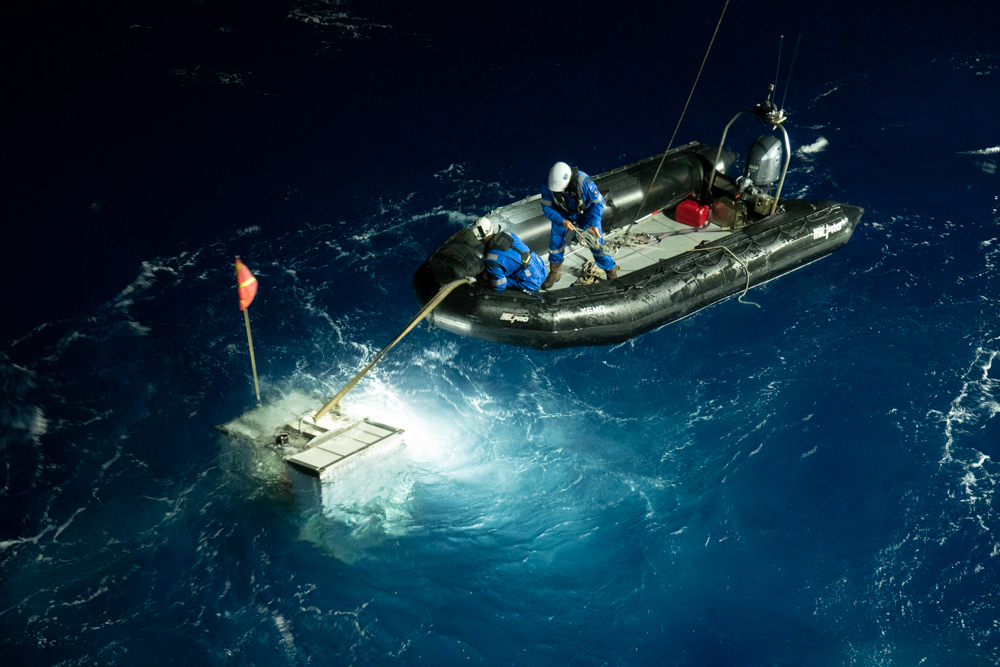
Become a Veracious Consumer
While Garriott was developing video games, he said he cast a wide net for inspiration. He wanted to create a video game that had ethics in its underpinning, and as someone with, originally, no background knowledge of history or philosophy, he realized he would need to do in-depth research to create a deep, meaningful storyline.
He became a “veracious consumer,” he said — he read many philosophical and religious texts that made him a “library builder of philosophical text,” and he credits parts of his success to his drive that expanded his knowledge with information that supplemented and added to his work.
“I wasn’t just studying my competitors or my own work,” he said. “I was studying things that had nothing to do with video games, and so that research to make things that are original was an important piece.”
It’s an asset that follows him during his expeditions, one that drives him to keep exploring, but he’ll never to fully recreate some of the experiences he’s had — like being stuck under the stern of the Titanic for an hour on a deep sea expedition, being a part of the last group to camp at the North Pole and seeing sheets of ice that look like frozen tidal waves on the North side of the mountain ranges in Antarctica.
“But having [these experiences], it then lets you sit down and go like, ‘Well, what can I do that will make people feel this? How can I fool you, the player, into believing that the weightiness of this moment in your virtual life has significance to you, has a sense of all to you, in the same way that I’m experiencing or seeking out in the real world?’”
One saying they frequently share in the Explorers Club is a twist on one of the mottos of the Boy Scouts — “take nothing but pictures, leave nothing but footprints, and bring back scientific examples.”
“If you’re in a rare and special place, you need to document it because odds are if few people have been there before, it probably means few people will be there anytime soon,” Garriott said.
It makes it that much more important to conduct research while in these settings and getting the most out of the experience in the short time the expedition takes, like understanding new ecosystems and species and learning about how they operate and if they’re endangered.
“All of this sort of knowledge is the sort of thing that I think all of us have this compulsion to not only go there but make sure we are really understanding our impact and the collateral impact of humanity within the world that we find ourselves,” he said.
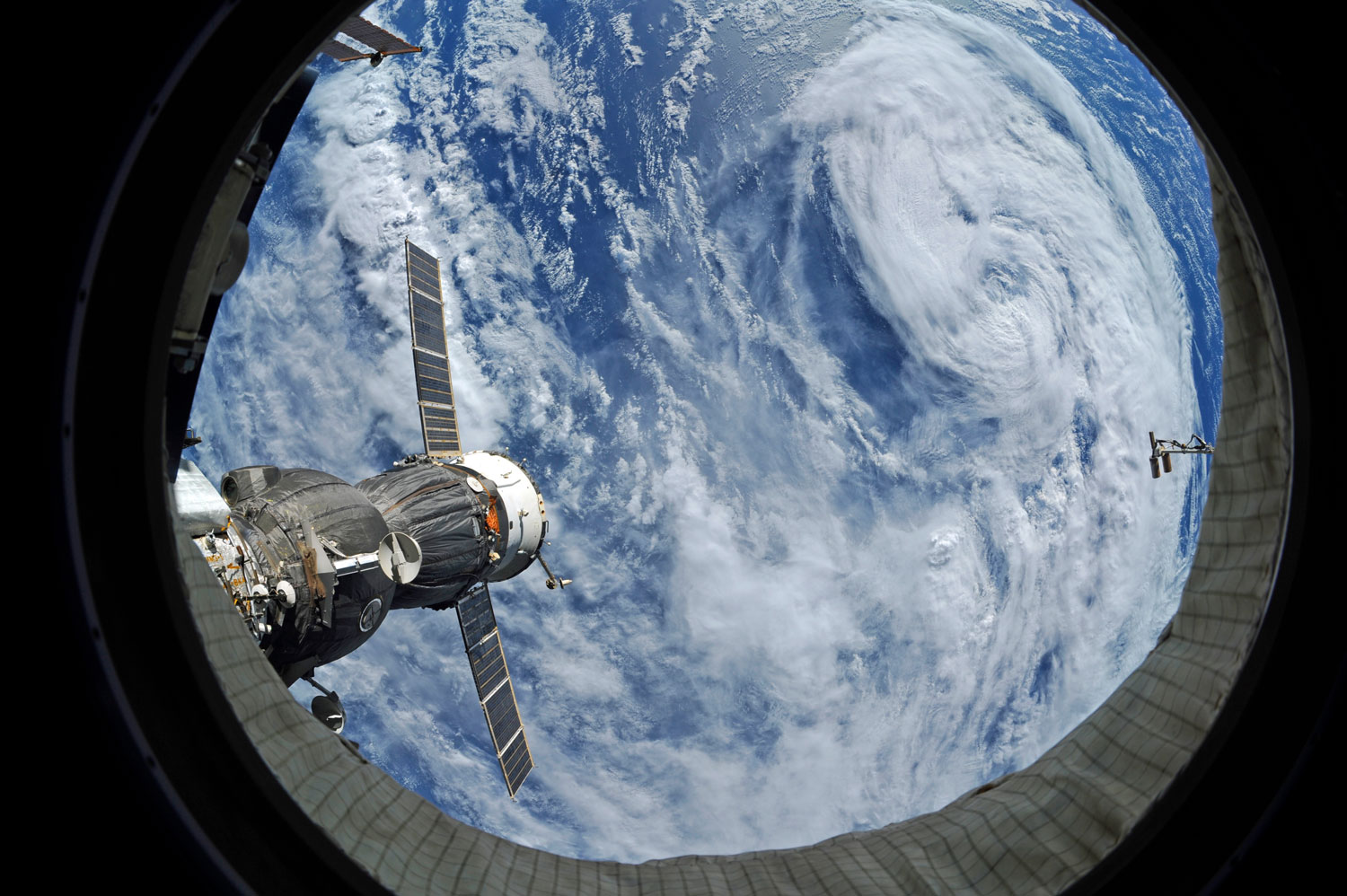
Be Confident
When he listens to critics of his work, specifically in video game development, Garriott said he’s understanding but knows that they don’t see the same vision he sees for what he’s working on. One of the most important things to remember at the end of it all, he says, even when he’s exploring, is to always believe in yourself.
“Every time that I’ve second guessed myself or people to beat me down and said, “You really need to do it the way I’m advising you. This is the best for you and for the company,” I’ve regretted it,” he said.
This article was featured in the InsideHook newsletter. Sign up now.
